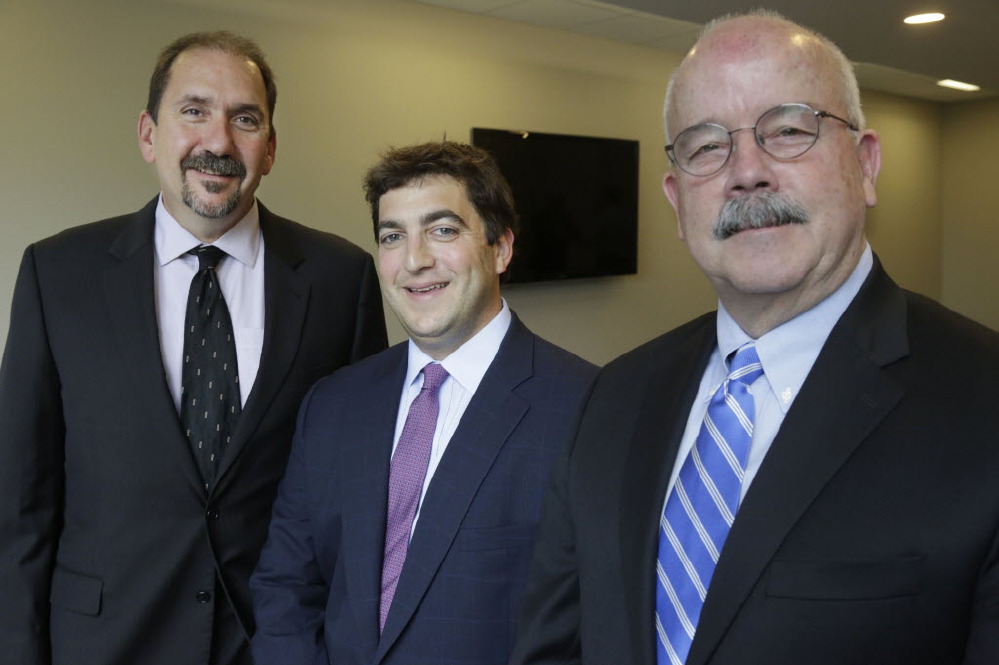THE WATCHDOGS: Pot cops move from fighting drugs to protecting now-legal industry
As cops, part of their jobs was to put away drug sellers and users. Now, former law enforcement officials are doing private security work for Illinois’ now-legal medical marijuana industry.
“I became a policeman in 1968,” says Terrance “Terry” Gainer, a former Chicago homicide detective and chief police legal adviser who went on to lead the Illinois State Police and the U.S. Capitol Police and is now a security adviser for a company that has been granted state permits to grow and sell medical marijuana. “I did not conceive that in the year 2014 I would be working for a company interested in the medical marijuana business.”
Gainer also served as the U.S. Senate’s sergeant-at-arms and was a top official with the Metropolitan Police Department in Washington, D.C. Now the head of his own consulting business, he is among at least five former law enforcement officials working for Illinois medical marijuana businesses.
Others who have hired on with medical pot interests:
• James Smith, a former U.S. Marshals Service inspector who spent nearly 30 years with the federal agency who is a managing member of Silver Star Protection Group.
• Kenneth Bouche, a former colonel with the Illinois State Police who’s now chief operating officer of the consulting firm Hillard Heintze.
• Ken Boudreau, a retired Chicago Police Department sergeant who oversaw gang school safety teams and is now chief executive officer of Embassy Security Group, which is working with nine Illinois marijuana license-holders.
• Michael Chasen, a former Chicago deputy chief of detectives who is chief security officer for Wicker Park’s Modern Medicine Dispensary.
“It’s a business,” says Smith, who is working with MedMar, which has gotten licenses for two marijuana dispensaries. “It’s legal in the state of Illinois. It’s important that the program be run right. And security is a major part of it.”
He says that, instead of protecting members of the Supreme Court or federal judges, as he once did, now he is “protecting a different commodity.”
State officials said applicants’ ability to provide security for medical marijuana dispensaries and farms was a key consideration in deciding who would get licenses to open Illinois’ first legal marijuana businesses.
That provided the opening for security consultants such as the former law enforcement officials. Big security firms like Hillard Heintze — founded by former Chicago police Supt. Terry Hillard and former Secret Service Agent Arnette Heintze, who once led the federal agency’s Chicago office — worked with entrepreneurs aiming to get in at the start of the medical marijuana industry in Illinois.
|
Ads by ZINC
|
|
|
“We have other clients that are pharmaceutical companies, and, in many ways, it’s not much different,” Bouche says.
Gainer says he made sure he wouldn’t be jeopardizing the top-secret security clearance he holds before getting involved with GTI, a company that’s been awarded two permits to grow medical marijuana in Illinois and one permit to sell the drug.
“This is not Colorado. It’s not legalized marijuana,” Gainer says. “It’s medical cannabis, and I think the clientele is conceptually different than if it was legalized or you thought of . . . the drug dealers pushing the nickel bags on the street.”
Boudreau says that, despite some initial doubts, he went to a medical marijuana expo and heard about children using medical marijuana to relieve symptoms of serious illnesses.
“It changed my whole perspective,” he says.
Smith says the security needed for medical marijuana facilities is “similar to a bank” or even federal courthouses.
He is among security experts who have testified before Chicago city officials involved in deciding where the businesses can go about the use of biometrics, high-tech cameras, vaults and so-called “mantraps” to limit access.
Also among those who have appeared before city officials is Chasen, who was commander of the detective division that handled the investigation into the now-famous death of David Koschman in 2004. The police decided not to charge Richard J. “R.J.” Vanecko, a nephew of then-Mayor Richard M. Daley, in Koschman’s death. Vanecko was indicted more than eight years later, after a special prosecutor was appointed in the wake of a Chicago Sun-Times investigation of the case. He pleaded guilty last year to involuntary manslaughter and served two months in jail.
Chasen, who did not respond to interview requests, told the city zoning board last year that “every inch of the building except for washrooms will be under constant video surveillance.”
Gainer says that his and other former law enforcement authorities job once was to “eradicate illegal drugs. But now he says, “In a state like Illinois . . . where medical marijuana is legalized, then we’re all in the business of doing it the right way.”









